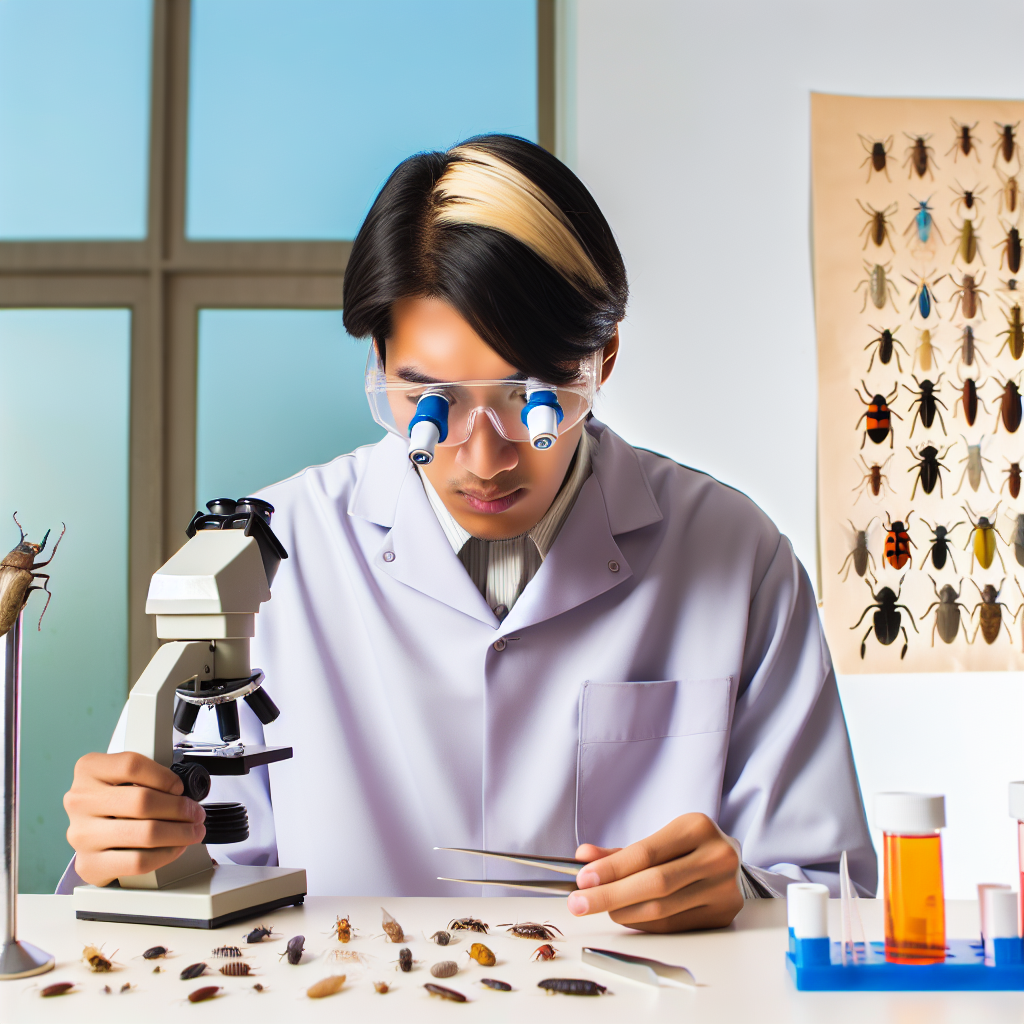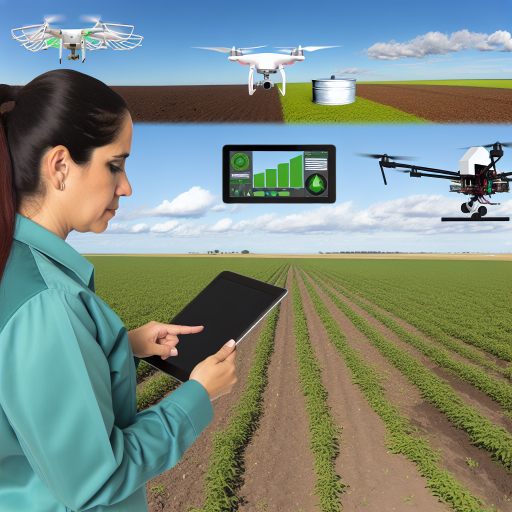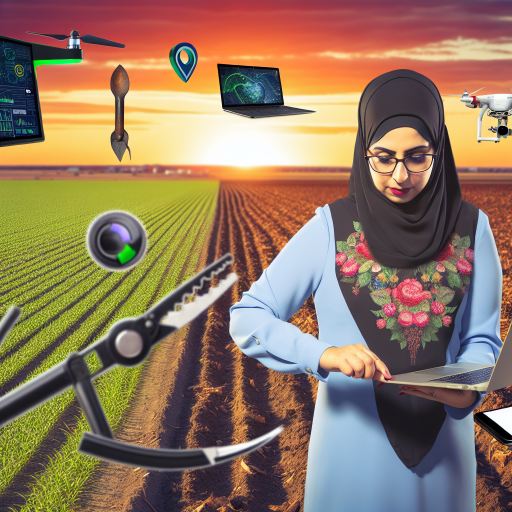Introduction
Entomologists play a crucial role in government agencies by studying insects and their impact on public health and safety.
These professionals are vital in identifying and controlling insect-borne diseases to protect the community.
Brief Overview of Entomologists in Government Agencies
Entomologists in government agencies are experts who specialize in the study of insects, particularly those that affect human populations.
They work closely with other professionals to develop strategies for insect control and prevention.
Importance of Entomologists in Ensuring Public Health and Safety
Entomologists contribute significantly to public health by monitoring insect populations and identifying potential risks to humans.
Through their research, they help prevent disease outbreaks and safeguard the well-being of individuals and communities.
Purpose of the Blog Post in Discussing the Roles and Duties of Entomologists in Government Agencies
This blog post aims to shed light on the essential roles and responsibilities of entomologists in government agencies.
By understanding their duties, the public can appreciate the valuable work these professionals do to protect public health.
Overview of Entomologists in Government Agencies
Entomologists are scientists who specialize in the study of insects.
They play a crucial role in identifying, controlling, and preventing the spread of insect-borne diseases and pests.
In government agencies, entomologists are instrumental in carrying out research, implementing control measures, and providing expertise on insect-related issues.
Definition of Entomologists and Their Specialization
Entomologists are scientists who study insects, including their biology, behavior, ecology, and classification.
They have specialized knowledge of insect species and their interactions with the environment.
Entomologists may focus on specific groups of insects, such as mosquitoes, ticks, or agricultural pests.
Explanation of the Presence of Entomologists in Government Agencies
Government agencies employ entomologists to address public health concerns related to insect-borne diseases and pests.
These experts work on surveillance, monitoring, and control programs aimed at reducing the impact of insects on human health and agriculture.
Their research informs policy decisions and helps to develop strategies for managing insect populations.
Importance of Entomologists in Combating Insect-Borne Diseases and Pests
Entomologists play a vital role in preventing the spread of diseases such as malaria, dengue fever, and Zika virus, which are transmitted by insects.
By studying insect vectors and their habitats, entomologists can identify high-risk areas and implement targeted control measures to reduce disease transmission.
In agriculture, entomologists help to protect crops from pests that can cause significant economic damage.
Transform Your Career Today
Unlock a personalized career strategy that drives real results. Get tailored advice and a roadmap designed just for you.
Start NowEntomologists in government agencies are also involved in public outreach and education efforts to raise awareness about insect-related issues.
Through workshops, seminars, and publications, they inform the public about the risks posed by insect-borne diseases and pests and provide guidance on preventive measures.
By collaborating with other stakeholders, such as health departments, environmental agencies, and community organizations, entomologists work to create effective and sustainable solutions to insect-related problems.
Roles and Duties of Entomologists in Government Agencies
Entomologists in government agencies have diverse roles and responsibilities that contribute to the protection of public health and the environment.
Some of the key duties performed by entomologists in government agencies include:
- Conducting field surveys to monitor insect populations and assess the risk of disease transmission.
- Collecting and analyzing data on insect populations, behavior, and habitats.
- Developing and implementing control measures to manage insect populations and reduce the risk of disease transmission.
- Collaborating with other agencies and organizations to coordinate insect control efforts.
- Providing expertise and guidance on insect-related issues to government officials, policymakers, and the public.
- Educating the public about insect-borne diseases, pests, and effective prevention measures.
- Conducting research to improve understanding of insect biology, ecology, and control strategies.
- Participating in emergency response efforts to control outbreaks of insect-borne diseases.
Overall, entomologists in government agencies play a critical role in safeguarding public health, agriculture, and the environment from the threats posed by insect-borne diseases and pests.
Their expertise, research, and outreach efforts are essential for developing effective strategies to mitigate the impact of insects on society.
Entomologists’ Role in Government Agencies
Entomologists play crucial roles in government agencies.
They contribute their expertise in various ways.
Conducting Research
Entomologists conduct research on insect populations and behaviors.
Such research helps to understand their biology and ecology.
They study how insects interact with their environment.
This includes examining their habitats, food sources, and mating behaviors.
Implementing Control Measures
Entomologists develop and implement control measures.
These measures manage insect pests that threaten agriculture, public health, and ecosystems.
They work to find effective and sustainable solutions.
This includes biological control methods and integrated pest management strategies.
Providing Expertise and Recommendations
Entomologists provide expertise and recommendations to policymakers and the public.
They focus on insect-related issues.
Additionally, they communicate scientific findings effectively.
Transform Your Career Today
Unlock a personalized career strategy that drives real results. Get tailored advice and a roadmap designed just for you.
Start NowThis helps to develop evidence-based policies and practices for pest management.
Collaborating with Agencies and Organizations
Entomologists collaborate with other government agencies, research institutions, and non-profit organizations.
They address insect-related issues together.
They participate in interdisciplinary teams and partnerships.
This effort develops comprehensive strategies for pest control and conservation.
Learn More: Poultry Science: Industry Insights and Trends
Duties of Entomologists in Government Agencies
Entomologists in government agencies play a crucial role in monitoring and managing insect populations to protect public health, agriculture, and the environment.
Their duties include:
Monitoring and Surveillance of Insect Populations
Entomologists are responsible for monitoring insect populations in various environments, such as agricultural fields, forests, and urban areas.
By tracking population trends, they can identify potential threats and develop targeted management strategies.
Developing and Implementing Integrated Pest Management Plans
Entomologists work on developing comprehensive pest management plans that integrate various control methods, including biological, chemical, and cultural practices.
These plans aim to minimize the use of pesticides while effectively controlling insect pests.
Conducting Field Studies and Experiments to Understand Insect Behaviors
Entomologists conduct field studies and experiments to observe insect behaviors, life cycles, and interactions with the environment.
By understanding insect biology and ecology, they can develop more effective control measures.
Educating the Public on Insect Biology, Ecology, and Management Strategies
Entomologists play a crucial role in educating the public about the importance of insects, their role in ecosystems, and effective management strategies.
By raising awareness, they promote integrated pest management practices and sustainable insect control methods.
Discover More: Effective Communication Tips for Extension Agents
Challenges Faced by Entomologists in Government Agencies
Limited Funding and Resources for Research and Control Programs
Entomologists often struggle with inadequate funding and resources to conduct necessary research and implement effective insect control programs.
Resistance to Insecticides and Other Control Measures
One major challenge is the development of insect resistance to commonly used insecticides.
This resistance makes it difficult to control pest populations effectively.
Transform Your Career Today
Unlock a personalized career strategy that drives real results. Get tailored advice and a roadmap designed just for you.
Start NowEmerging and Re-emerging Insect-borne Diseases
Entomologists face the ongoing challenge of monitoring and controlling insect-borne diseases.
These diseases can pose significant threats to public health.
Public Misunderstanding and Misconceptions about Insect Control Methods
There is often a lack of public awareness and understanding of the importance of insect control measures.
This leads to resistance and misconceptions about their effectiveness.
Discover More: Understanding Rangeland Health and Its Indicators

Impact of Entomologists in Government Agencies
Entomologists working in government agencies play a crucial role in various aspects that benefit society as a whole.
Reduction of Insect-Borne Diseases and Pests
-
Entomologists conduct research to understand the behavior and life cycles of disease-carrying insects.
-
They develop strategies to control and eliminate these insects to reduce the spread of diseases.
-
Through their work, entomologists help protect public health and prevent disease outbreaks.
Preservation of Ecosystems and Biodiversity
-
Government entomologists study the impact of insects on ecosystems and biodiversity.
-
By identifying invasive species and monitoring populations, they help preserve the balance of nature.
-
Their efforts contribute to maintaining healthy ecosystems and ensuring the survival of various species.
Improvement of Public Health and Agricultural Productivity
-
Entomologists in government agencies work to control pests that threaten crops and livestock.
-
By developing integrated pest management strategies, they help farmers increase yields and profits.
-
Their work also ensures the safety of food supplies and protects agricultural resources.
Contribution to Scientific Knowledge and Innovation in Insect Control
-
Government entomologists conduct research to understand the biology and behavior of insects.
-
They collaborate with other scientists to develop new and effective methods of insect control.
-
By sharing their findings and expertise, they contribute to advancements in entomology and pest management.
Entomologists in government agencies play a critical role in addressing various challenges related to insects. Their work has a significant impact on public health, agriculture, and the environment, making them invaluable contributors to society.
Discover More: Implementing Organic Farming Methods Successfully
Implications of Government Entomologists in Pest Management
Entomologists in government agencies play crucial roles in various aspects of pest management.
They are responsible for conducting surveys, developing control methods, and providing expertise to policymakers.
Recognizing and supporting the work of entomologists is essential to ensure effective pest control strategies and preservation of ecosystems.
Promoting collaboration and communication among entomologists, policymakers, and the public is crucial for sustainable pest management.
By working together, we can address emerging pest issues, protect public health, and safeguard our environment for future generations.
Entomologists in government agencies are vital members of our society, and their contributions deserve appreciation and support.
Additional Resources
Zoologists and Wildlife Biologists : Occupational Outlook Handbook …
Career in Sustainable Agriculture & Entomology: Interview with …




